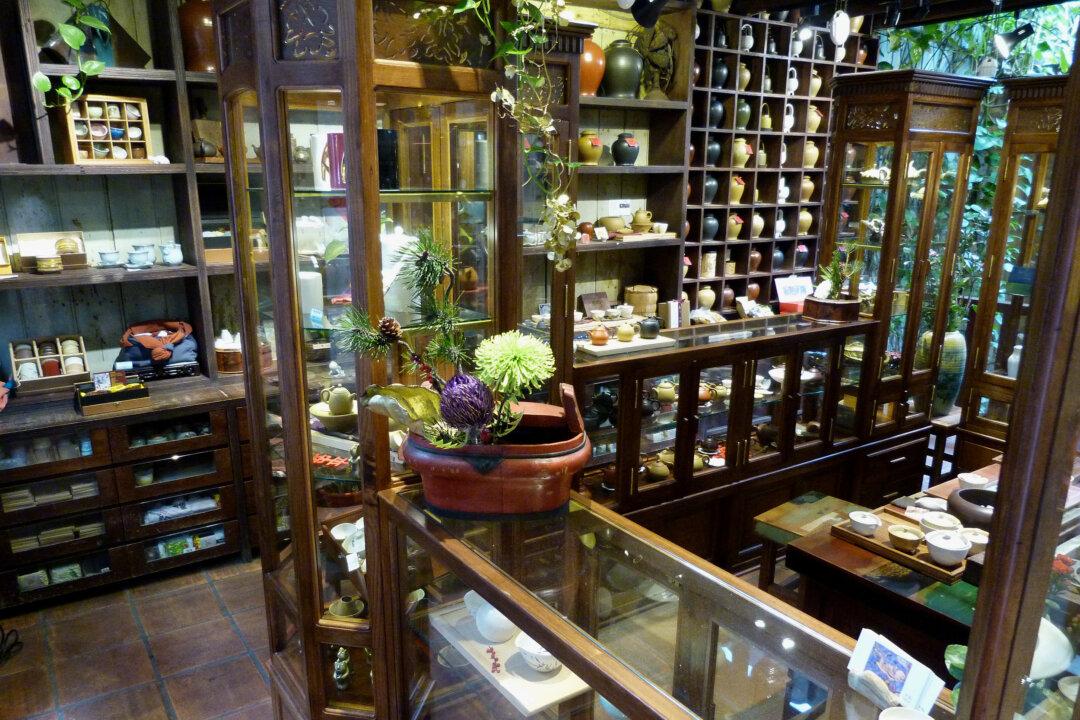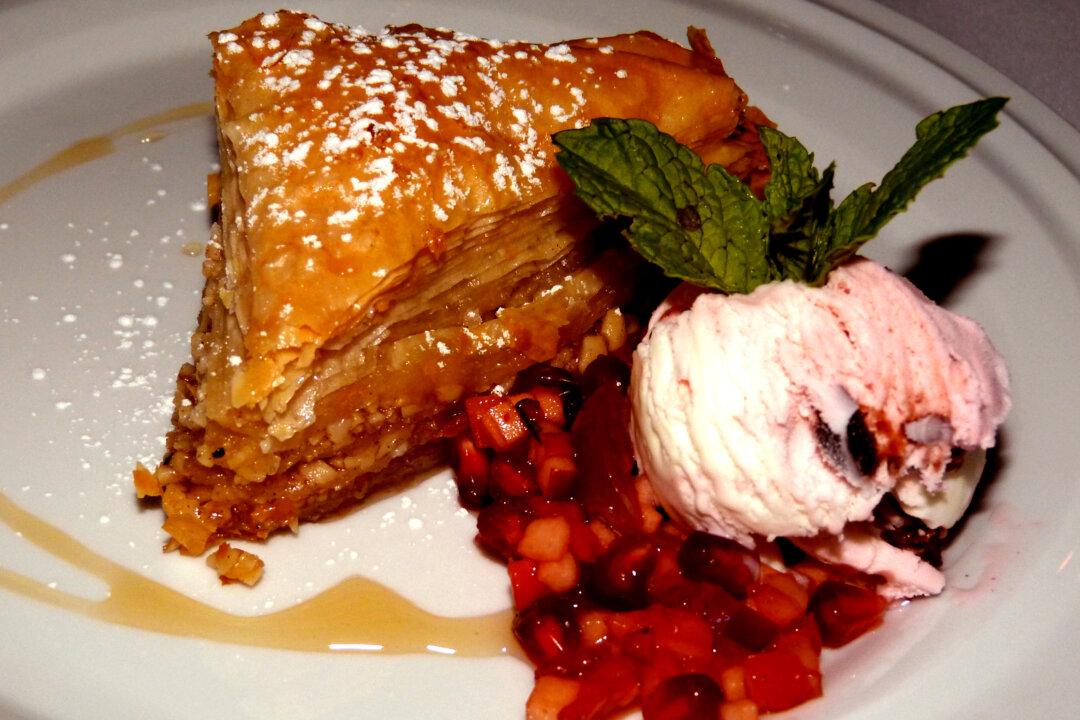I walked into Jioufen Tea House and, all of a sudden, centuries seemed to peel back—I had entered China of the Sung Dynasty.
Perhaps I have been watching too many kung fu films, but that was my reaction when we had tea at this atmospheric emporium in the 19th century rural village of Jioufen.
No trip to Taiwan is complete without a visit to one of the old streets in historic towns and villages to shop for handicrafts and to sample local foods. The discovery of gold deposits in the late 1880s in the Jioufen area transformed an impoverished village into a booming gold-rush mining town.
Today, quaint, covered Jishan Street, the main street of the tourist part of town, is lined with stalls selling souvenirs, antiques, modern copies of ancient artifacts, and local delicacies.
The teahouse, near the end of the street, is definitely a site not to be missed.
The building is multistoried, with traditional, cubicled cypress wood cabinets at the first, street entrance level, containing exquisite tea cups, both traditional and modern looking teapots, tea storage jars, tea packages of assorted—both common and very rare—tea leaves. On a counter is a black cast iron teapot and white porcelain teacups to be used for a quick tea tasting if you are just purchasing tea leaves and not staying to drink tea on site.
Brightly colored flower arrangements in bamboo baskets decorate many of the countertops.
Wooden steps take you down through an open-to-the-sky narrow internal courtyard that has a multitiered water fountain and a pond with brocaded koi, to a lower level room with display cabinets enclosing precious antique teacups and teapots.
Another set of steps then leads you to where the tea drinking actually takes place, in an even lower room full of tables, benches, old traditional Chinese beds that are used as banquettes, and a row of six cast iron teapots, bubbling away on burning charcoal.
A U.S. fire department would have a fit with this kind of open charcoal fires, but it doesn’t seem to bother the thousands of visitors of the teahouse or the local women working there. An exterior veranda overlooks a small red-lantern-festooned garden courtyard full of green bushes.
The Taiwanese still consider tea drinking as serious business, and fragrant tea—sometimes black, sometimes white, sometimes green—is still poured in a ceremonious manner, and accompanied by small pastries and savory tidbits.
It is indeed a return to an earlier, slower, much more civilized time.
Jioufen Teahouse
142 Jishan St., Ruifang District,
New Taipei City, Taiwan 224
+886-2-2496-9056
www.jioufen-teahouse.com.tw
Manos Angelakis is a well-known wine and food critic based in the New York City area. He has been certified as a Tuscan wine master, by the Tuscan Wine Masters Academy, as well as being an expert on Greek, Chilean, and Catalan wines. He judges numerous wine competitions each year and is the senior Food & Wine writer for LuxuryWeb Magazine, www.luxuryweb.com, and The Oenophile Blog, www.oenophileblog.com.




